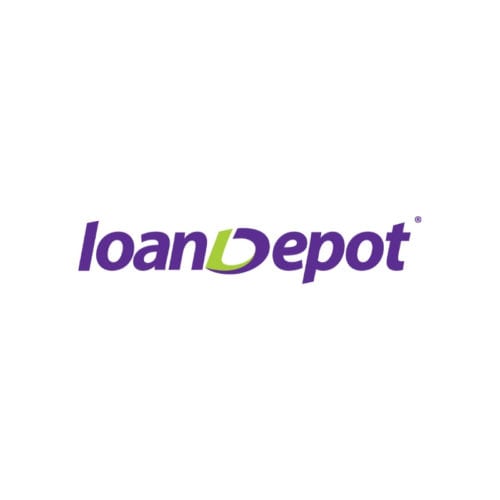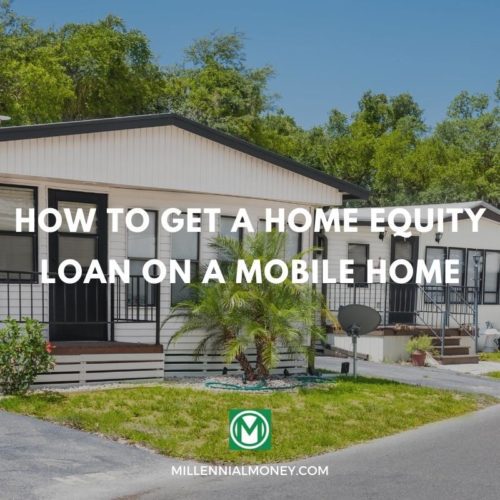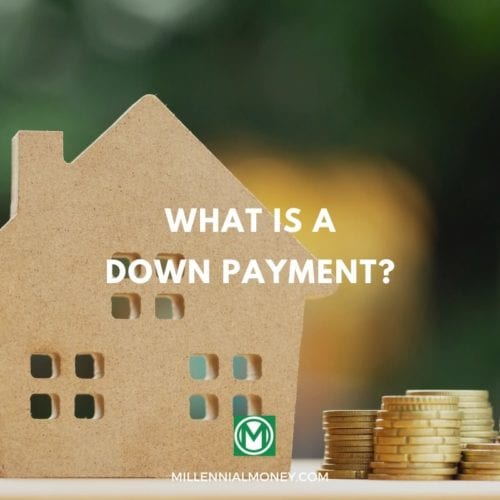Buying a house is a big deal. It’s the most significant investment many of us will ever make. Owning a home means your monthly housing costs become an investment in your future. As your home’s value grows, so do the profits you could earn by selling it someday in the future. So, making sure you get a home loan with one of the best mortgage lenders should be a top priority.
If you’re thinking about buying or refinancing a home, we’ve reviewed today’s best mortgage lenders and listed the areas where they excel to help you find the best fit for you.
Top 10 Mortgage Lenders for February 2026
Here are the best mortgage lenders in 2026:
- LoanDepot
- Rocket Mortgage
- Better.com
- Chase
- Veterans United
- Flagstar Bank
- PNC
- Ally
- Truist
- First Horizon Bank
1. LoanDepot
🏆 Best for: Direct Lending
LoanDepot helped pioneer online lending in the 1990s, back in the days of aol.com email addresses and bulky computer monitors.
LoanDepot no longer stresses its online experience, though you can still benefit from its fast digital underwriting process. Instead, LoanDepot has branch offices across the nation and an active phone-based customer service department that can originate and guide you through the loan process.
LoanDepot excels with loans for new construction and for borrowers who would like to buy and renovate a home using one loan.
You’ll find just about every kind of mortgage (USDA-subsidized is one exception).
Pros
- Direct lender = no middleman
- Great for new construction & restorations
- Strong phone customer service
- Digital underwriting speeds up the process
Cons
- Online experience limited
- No USDA loans
2. Rocket Mortgage
🏆 Best for: Online Mortgages for First-Time Buyers
Formerly Quicken Loans, Rocket Mortgage has grown into the nation’s highest-volume mortgage lender, offering new purchase and refinance loans.
This provider excels with its ease of use as an online mortgage lender. By their nature, mortgages are complex, yet Rocket’s online mortgage application process works seamlessly, even on your smartphone.
The company’s marketing department claims you can apply and get a decision in 15 minutes. This quick response may be possible, but I’d set aside at least an hour.
Pros
- Quick and easy to use
- Great for federal or conventional loans
- Fully online application
Cons
- No home equity line of credit option
- Strictly by-the-numbers; no nuance
3. Better.com
🏆 Best for: Low Fee Online Borrowing
Better.com has financed more than $100 billion in home loans since issuing its first mortgage back in 2016. This online lender uses algorithms to connect borrowers to the right loan.
Securing Fannie Mae funding has helped establish Better.com as a legitimate alternative to conventional lending.
Better.com specializes in simplifying the application process and lowering or eliminating fees such as the origination fee. New home buyers can apply for fixed-rate or adjustable-rate mortgages, Jumbo loans, VA loans, and FHA loans. If you’re looking to refinance, you can get a cash-out refinance loan or a rate-and-term refinance loan.
Pros
- Simplicity
- Lower fees
- Competitive interest rates
Cons
- No USDA loans
- No local branches
4. Chase
🏆 Best for: Combining Traditional and Online Lending
I’ve included in this list a lot of unconventional options for mortgage lending — from loan comparison tools to all-online lenders to lenders who use unique forms of underwriting.
Chase fits none of these descriptions. It’s a standard, national bank with loan officer-staffed branch offices throughout the nation. Borrowers looking for an in-person lender with a modern approach usually like Chase.
You’ll get a wide selection of loans — new purchases, refinances, home equity lines of credit (HELOC), federally subsidized (FHA loan), conventional, and Jumbo.
While you will need to work with an in-person loan officer, you’ll also be able to track your application’s status online and provide digital documentation in many cases.
Pros
- A wide selection of loans
- A large staff of loan officers
- Discounts for existing Chase customers
Cons
- Annoying fees (a charge to lock in your rate, for example)
- No home improvement loans
- Requires you to speak to a rep to apply
5. Veterans United
🏆 Best for: VA Loans
Veterans United has emerged as the largest VA lender in the nation. But veterans can also get great mortgage rates with FHA and conventional loans with Veterans United, if they have a FICO score of 620.
Veterans United’s underwriting process considers your residual income — the money left over each month after you pay the bills. If your debt-to-income ratio raises some questions with a lender, your residual income could help resolve them and get you back on the path to a great home loan.
Military families may also want to check out USAA and Navy Federal Credit Union, both of which specialize in VA lending.
Pros
- VA program requires no down payment
- Great 24/7 customer service
- Wide variety of loan products
Cons
- No home equity line of credit (HELOC)
- Limited local branches
6. Flagstar Bank
🏆 Best for: Discounts
Headquartered in Troy, Michigan, Flagstar Bank is a popular lender that was acquired by NYCB in 2022. It offers a range of mortgage options nationwide. You can apply for conventional, ARM, VA, USDA, and FHA loans.
Flagstar also provides mortgage refinances, home equity loans, and home equity lines of credit. Just note that home equity loans are limited to areas that have local branches.
It’s also on our list of top lenders for professionals, with specialized loan offers for select medical professionals, attorneys, ATP pilots, and certified public accountants. And some professionals, like military members, veterans, and first responders, can also qualify for a mortgage discount.
Flagstar Bank is a great pick if you want flexible application options. In many locations across the country, you can apply online, over the phone with a representative, or in person at a local branch.
Flagstar’s origination fees can be higher than average, but its interest rates are fairly competitive.
Pros
- Competitive rates
- Considers credit score alternatives
- Several discounts
Cons
- High origination fees
- Home equity loans limited by location
7. PNC
🏆 Best for: Transparent Rates
PNC Bank has been in business since 1845. It has more than 2,600 brick-and-mortar locations across 29 states and Washington, D.C.
PNC has an impressive selection of financial products, from checking and savings accounts to credit cards and investment services.
But one of its biggest standouts is the mortgage department. When it comes to mortgages, PNC offers conventional fixed-rate home loans, FHA loans, USDA loans, and VA mortgages.
If you’re looking to refinance, you can choose between cash-out refinances, rate-and-term refinances, and a second mortgage. PNC offers both fixed-rate and adjustable-rate HELOCs.
In addition to its actual mortgage products, PNC Bank offers a wealth of tools, all housed under its Home Insight Planner. You can build a profile, look for homes within your set budget, and analyze and adjust your spending and expenses.
Unlike a lot of mortgage lenders, PNC Bank is super transparent about its mortgage rates. When you enter the home’s value, downpayment amount, loan amount, credit score, and location, PNC will show you the current interest rate and APR for different mortgage options.
Pros
- Can be approved online in 30 minutes
- Provides quotes upfront
- Lenient credit requirements
Cons
- Doesn’t offer home renovation loans
- Branches limited to 29 states
8. Ally Bank
🏆 Best for: Quick Turnaround Time
Ally has grown into one of the most popular digital banks in the nation, with more than 10.5 million customers. It’s one of our top-rated online banks overall, with competitive high-yield savings and checking accounts, credit cards, and investment accounts and services.
It also ranks as one of the best online lenders, offering mortgages, auto loans, and personal loans. That’s largely due to its quick online application and pre-approval process. If you want to move through the process as quickly as possible, Ally is worth considering.
When you apply online, Ally claims you can get pre-approved in as little as three minutes. The entire homebuying process can take anywhere from a couple of weeks to months, and you only have to interact in person when you sign your closing papers.
Ally also stands out for not charging lender fees, which most of its competitors do. That includes application processing fees, origination fees, and underwriting fees.
The lender requires a credit score of 620 for most of its mortgages and will consider applicants with a DTI of up to 50%.
Ally offers fixed-rate, ARM, first-time homebuyer loans, and jumbo loans, as well as refinancing options. However, It lacks government-backed loans like FHA, VA, and USDA loans, which is a drawback worth considering if you’re eligible for one of these loan programs.
Pros
- Pre-approval in as little as 3 minutes
- Competitive jumbo loans
- No lender fees
Cons
- No government loans
- No local branches
9. Truist
🏆 Best for: Specialty Mortgage Options
Truist is a solid choice at every stage of homeownership. Whether you’re a first-time homeowner, are buying your second or third home, or you’re looking to refinance, Truist has a strong lineup of mortgage products to accommodate your needs.
You can get a conventional, ARM, jumbo, VA, FHA, USDA, or home equity line of credit. Truist excels at its specialty mortgage programs. It has physician loans, construction loans, and warehouse lending mortgages.
The bank is extremely transparent about its current mortgage rates, providing sample rates for several mortgage and refinancing options. The website features an easy-to-use mortgage payment calculator and a home affordability calculator as well.
Overall, Truist has one of the most user-friendly websites we came across in our review. The lender offers plenty of resources to educate homebuyers on their options.
Truist is also known for its affordability for first-time homebuyers—it sometimes offers promotions, like $500 off closing costs, and has downpayment requirements as low as 3%.
Pros
- Excellent online resources
- Lists current mortgage rates
- Same-day pre-approval
Cons
- Limited branch locations in some areas
- Vague eligibility requirements
10. First Horizon Bank
🏆 Best for: Online tools and resources
While First Horizon might not be as recognizable as some of the financial institutions on this list, it’s a lender worth considering. Founded in 1864 in Memphis, the bank has been accredited by the BBB since 1997 and has an A+ rating.
Today, it has locations in the following states: Alabama, Arkansas, Florida, Georgia, Louisiana, Mississippi, Missouri, New York, North Carolina, South Carolina, Tennessee, and Texas.
First Horizon Bank has a lot to offer, whether you’re a new homebuyer or you’re looking to refinance your current home. You can choose from several types of mortgages, including conventional fixed-rate mortgages, ARMs, HELOCs, and government-backed loans.
I’m a big fan of First Horizon Bank’s online tools. You’ll find helpful blog posts breaking down the basics of mortgages and several calculators that can help borrowers compare loan options. When you provide your contact info on the bank’s website, a representative will contact you to work through your application.
©2023 First Horizon Bank, NMLS# 472329. All loans subject to approval, including credit approval. Restrictions may apply. Other programs are available. Conditions subject to change without notice. Equal Housing Lender. Member FDIC.
Pros
- Helpful online calculators
- Lends up to $4 million
- Fair credit requirements
Cons
- No online pre-approval
- Branches limited to 12 states
Compare Rates with First Horizon Bank
Before Applying for a Mortgage
A mortgage is a type of loan providing the money you need to buy a home. In exchange for this money, you’ll pay a monthly payment, often for 30 years or possibly even more. You can also find 10-, 12-, 15-, and 20-year terms.
Before applying for a mortgage, you should know:
Your Credit Score:
Your score impacts your eligibility for a mortgage. If you get approved, your score directly impacts your interest rate. And your rate, of course, helps determine the size of your monthly payment. If your credit score needs a little help, start working on it a year or so before you’re ready to buy a house.
Typically you’ll have better luck with a federally subsidized (FHA, USDA, or VA loan) if you have a credit score below 620.
Your Price Range:
Home purchase prices vary widely around the country. Determine your price range and use a mortgage calculator to find out how much loan you can afford. If you’re shopping conventional mortgages, you’ll need at least 10 percent of the purchase price to make a down payment.
The Extra Costs:
Mortgages usually require origination fees in the neighborhood of 1 percent of the loan amount, appraisal fees for your new property, application fees, attorney’s fees for closing the transaction, inspection fees to make sure the home’s safe to buy, and so on.
Some of these costs could be folded into the loan itself, but it’s better to be prepared. VA loans charge their own origination fee which could exceed 3 percent of the loan estimate.
Your Loan’s Term:
The longer your loan’s term (30 years, for example), the lower your monthly payment. But, longer loan terms have higher interest rates which means they cost more overall.
Where to Get Insurance:
Homeowners insurance coverage is a must. Once you know your home’s price range, start shopping for your homeowner’s coverage. Your Realtor, lender, or credit union may have suggestions about regional insurance companies.
PMI:
Private Mortgage Insurance protects your lender in case you default on the loan, but you’ll have to pay the premiums, which add to your monthly payment. Homebuyers who make a 20 percent down payment will avoid PMI.
If not, you can cancel PMI once you own 80 percent of the home (unless you have an FHA loan which now requires PMI throughout the term).
HOAs and Property Taxes:
Your city and county — or your neighborhood or condo development — will levy fees and taxes on your home. These fees and taxes protect your property and improve your neighborhood. They’re a good investment, but you’ll feel the cost. Check on these recurring charges before you complete the mortgage process.
How to Get a Mortgage with Poor Credit
The better your credit score, the more mortgage options you’ll have — that’s just how lending works.
Since different lenders have slightly different criteria, there are no hard-and-fast rules I can cite. But here are some general guidelines.
| Type of Loan | FICO Score Needed | Down Payment Needed |
|---|---|---|
| Conventional Loan | 620 | At least 10 percent |
| FHA Loan | 580 | 3 to 3.5 percent |
| FHA Loan | 500 | 10 percent |
| USDA Loan | 640 | 3 percent |
| VA Loan | 580 | None required |
Unless you’re a veteran who can qualify for a VA loan, your best bet (if you’re struggling to meet the minimum credit score) will probably be an FHA-backed loan which could also require just 3.5 percent as a down payment.
FHA loans have backing from the Federal Housing Authority, which means lenders can take more of a risk with your mortgage and can even extend competitive mortgage rates. The more money you can put down, the better case you can make for borrowing with a shakier credit history.
As I said above, check with New American Funding if you’d like a more nuanced approach to your mortgage underwriting, which could help you make a stronger case.
And, if you’re just starting out with no established credit, but you’re in a high-earning profession, check out SoFi’s options.
Shakier credit means you probably will pay private mortgage insurance which costs about 0.5 to 1 percent of your loan amount each year.
Improving Your Credit Score for a Mortgage
A credit score above 650 or 700 opens a lot of doors — literally and figuratively — when you’re mortgage shopping. Better credit scores secure lower borrowing rates which increase your buying power.
Unless you’re in a big hurry to buy, consider spending a couple of years improving your credit before applying for a loan.
Pay your bills on time, pay down your credit card balances (but don’t necessarily close the accounts), and try not to apply for new auto or unsecured loans.
You can use a free service like Credit Sesame to keep track of your progress.
Looking Beyond Your Credit Score
Even if you have poor credit, you can make a case for better mortgage loan terms if you have:
- A Big Down Payment: Your down payment shows your lender you’re serious about buying the house, and you’re willing to risk your own money to do so.
- Money in the Bank: If you’ve made a sizable down payment and you still have $20,000 in savings, your lender will notice you’re in pretty good shape despite your credit report.
- Long-term Employment: You’ve worked in the same place for 10 years? Your lender should consider this source of stability in your life. If you’re self-employed, be willing to show your tax forms to prove your income.
- Debt-to-Income Ratio: Someone without much debt besides the mortgage can make a stronger case. The percentage of your income you spend on debt determines your debt-to-income ratio.
These factors can’t completely erase the impact of a poor credit score, but they offer evidence you can use to appeal your case.
Finding the Best Mortgage Loan
For most homebuyers, getting your dream home with a low borrowing rate and mortgage payments you can afford will be satisfying enough. When a mortgage company can provide this kind of home-buying experience, you’ll probably rate it well.
Beginning the mortgage process with a solid credit score, a 20 percent down payment in the bank, and a low debt-to-income ratio will make this possible with almost any lender.
Still, customer experience includes more than the right loan. Consider the following:
- How You Like to Shop: Some of us prefer online-only mortgage origination. Consider Rocket Mortgage or Better.com. Others prefer a face-to-face experience. Chase or a credit union in your town can provide this.
- Mortgage Company Reviews: Agencies like J.D. Power rate customer satisfaction. You can learn a lot by reading online reviews on TrustPilot or ConsumersAdvocate too. Look for common problems in multiple reviews since every lender gets bad reviews from some customers. If you can’t find much information about a lender, check out its NMLS profile.
- Decide on Fixed vs. Adjustable: Most lenders let you choose a fixed-rate loan or an adjustable-rate mortgage. With fixed loans your interest rate and your mortgage payments stay the same. With an adjustable-rate (ARM) loan your mortgage rate would stay the same for a set time, usually 3, 5, or 7 years. Then it — and your monthly payment — would vary each year with the market. ARMs can work well if you plan to sell or refinance your home within a few years.
- Choose Conventional vs. Subsidized: Consider a conventional loan if you have an excellent FICO score in the 640 or higher range and have at least 10 percent and ideally 20 percent to put down. Home buyers with credit challenges should consider a USDA or FHA loan which have lower borrowing standards and require lower (or possibly no) down payments. Veterans have access to VA loans which provide even more freedom in borrowing.
Get Quotes from the Best Mortgage Lenders
Avoid agreeing to a loan you can’t afford by shopping for at least three rate quotes. Compare rate quotes and application fees for different mortgage loans. Ask for a truth-in-lending report so you’ll know how much you’ll pay in interest throughout the loan term.
Remember to consider property taxes, homeowners insurance, and other ongoing fees. And don’t forget the closing costs. Finance them with your loan only if you have no other choice.
When you’re in control of the borrowing process, you’ll have more freedom now and throughout your journey as a homeowner.
Our Methodology
We’ve reviewed dozens of mortgage lenders across the nation to determine which ones stand out as the best lenders and mortgage brokers. Here are some of the metrics we use to assess lenders:
- Rates: Our analysis factors in the interest rates each lender offers.
- Types of mortgages: We also factor in the types of home loans on offer.
- Availability: We consider each institution’s availability, including which states it originates mortgages in and whether or not there are physical branches.
- Eligibility requirements: In our evaluation, we also factor in credit score and DTI requirements, minimum down payments, and whether or not the lender considers alternative credit data.
- Speed: We also consider the average timeline for pre-approval and closing.
- Promotions: Last, we consider whether each mortgage lender offers any promotional pricing or discounts to help applicants save.






No comments yet. Add your own